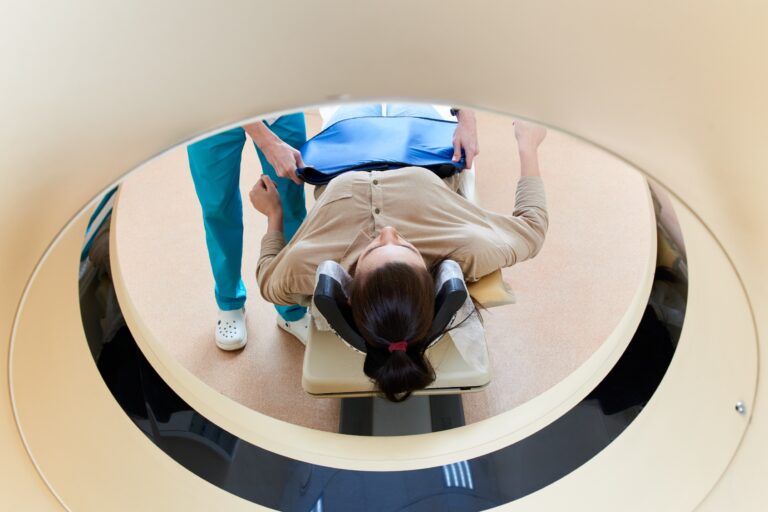
Michael Joe Cini
30th March 2023
Imagene: Innovating cancer diagnostics through AI
Cancer therapies have rapidly improved in the 21st century, and outcomes have been more favourable for patients who present themselves for early check-ups. However, accurate diagnostics is a valuable first step for suitable therapies to be used. Imagene, a company based in Tel Aviv, Israel, has developed a new AI-based analysis software to facilitate tumour mutation profiling. This new technology can potentially reduce the time interval for tumour profiling from weeks to minutes.
Exciting results from Imagene: The progress thus far
In an interview with MedGadget, Dean Bitan, CEO and co-founder of Imagene, revealed some of the problems that cancer diagnostics face. Only two decades prior, he recounted, most treatments were one-size-fits-all, meaning that while many patients would get healed from these remedies, several others would feel no therapeutic effect. DNA sequencing has been developed, and it is possible to develop better drugs that target cancers today. However, the process is long and complex, requiring biopsy samples and high expenses.
In addition, where all these facilities are available, the time difference between obtaining a biopsy and making a diagnosis is rather much. According to most reports, the time between taking a biopsy and determining the nature of cancer can be as high as a month. Even the current gold standard, new generation sequencing (NGS), can require up to six weeks to execute, requiring a large tumour sample.
Because of the relative difficulty of getting a correct diagnosis, the initiation of cancer treatments can often be delayed by several weeks, as the clinician needs to know what kind of cancer they are dealing with before beginning any therapy. For context, the amount of time NGS results take to come out is often measured in weeks, and most results take up to a month to appear. Unfortunately, these long periods may be too long for patients to get optimal treatments, as certain cancers metastasise quite rapidly. A critical example of these is lung cancer patients, who don’t get the optimal treatment available in 64% of cases.
Imagene has seen exciting results from various studies conducted using the AI tool. Their first paper, published in Annals of Oncology in September 2021, highlighted the tool’s potential. In ‘AI-based detection of molecular biomarkers directly from H&E scanned slide,’ Peled, Zalach, Hayun, and Paz-Yaacov note that currently, testing capabilities, options, and interpretation vary significantly between medical centres. Their study examined several H&E slides and used a trained AI model to check for NTRK, RET-fusions & BRAF mutation. The results showed a 100% sensitivity for NTRK, a 100% sensitivity for RET-fusions, and a 91.7% sensitivity for BRAF mutation. Specificities were 93.9%, 95.7% & 90.7% specificity, respectively, showing the “potential of combining artificial intelligence methodologies with pathology and oncology domains. ”
The AI tool has continued improving since then, as the latest peer-reviewed literature shows. Their latest paper, written by a team headed by Chen Mayer, a researcher at the Institute of Pathology, Sheba Medical Center, reveals continuous improvement. Published in the journal Modern Pathology, ‘Direct identification of ALK and ROS1 fusions in non-small cell lung cancer from hematoxylin and eosin-stained slides using deep learning algorithms’ highlights Imagene-AI’s effectiveness at detecting lung cancer mutations. With a cohort of 72 lung cancer cases, the AI tool recorded a sensitivity of 100% for both ALK and ROS-1, a specificity of 100% for ALK, and a specificity of 98.6% for ROS-1.
The team at Imagene can hardly wait to roll out this technology, and they’re working non-stop with medical centres, laboratories, pharmaceuticals, and public databases to refine and optimise their AI models. More clinical research is being conducted on the technology, and the company is rapidly advancing towards commercialising the technology following regulatory requirements.
Imagene: A faster, standardised solution for detecting cancer biomarkers
With a background in developing data-driven solutions in the Israeli Defense Forces and several tech startups, including in the bioscience field, Dean Bitan, co-founder and CEO of Imagene, was probably one of the better-positioned minds to recognise the gap in cancer diagnostics that could be filled by technology. Currently, cancer diagnostics is expensive, lengthy, and inaccessible to low-income communities. So, recognising the possibility of using AI to address the issues of access and fast, accurate diagnoses in cancer therapy, he started Imagene in 2020 with co-founders Jonathan Zalach and Shahar Porat. The team at Imagene consists of several experts, including Prof. Nir Peled, MD PhD, Head of Shaare Zedek Medical Centre’s Cancer Institute, Nurit Paz-Yacoov, PhD, former Head of Scientific Research at GENOOX, and Will Brown, a business leader in pharma/life sciences with over two decades of experience.
Imagene’s focus is on making pathological and molecular testing more effective with a limited amount of tissue. Unlike several other diagnostics mechanisms, Imagene’s new technology only requires images from the initial biopsy to detect cancers. The tool can immediately detect or identify a gene alteration with one digitised biopsy image. Its AI model can merge self-supervised learning and other data-driven methods to analyse images properly and generate accurate results.
At Imagene, the approach is three-pronged, aiming at immediate biomarker profiling, image-based diagnostics, and gold-standard levels of accuracy. Currently, Imagene’s test can provide a report ready for biomarker identification within a few minutes, which is several leagues faster than any traditional technologies, which take weeks. Due to these levels of quickness, patients may soon be able to know both their cancer diagnosis and treatment on the same day, which is infeasible with today’s traditional modalities. Imagene is also working to improve the ability of AI to recognise several different cancer types. Today, they’re working with 28 biomarkers in eight different organs to standardise results and improve accuracies and relevance in the clinical setting.
So far, they’ve made significant progress with high levels of accuracy. Their 28 models spread across eight organs have yielded an average sensitivity of 95% and a specificity of 94%. The goal is gold-standard levels of accuracy. By using prospective data and unsupervised learning, Imagene is approaching the quality of results obtained with the highest-quality testing today.
Stay Ahead in Medical Technology with Med-Tech World News
Keep up-to-date with the latest insights on medical technology, innovation, and healthcare by visiting Med-Tech World News. Our team of experts offers in-depth coverage of the industry’s most important topics and trends. Don’t miss out on valuable insights that can help you stay ahead in this fast-paced field.
Check out this panel of experts sharing their insights on AI and personalised care, from the Med-Tech World Europe Summit, 2022.




